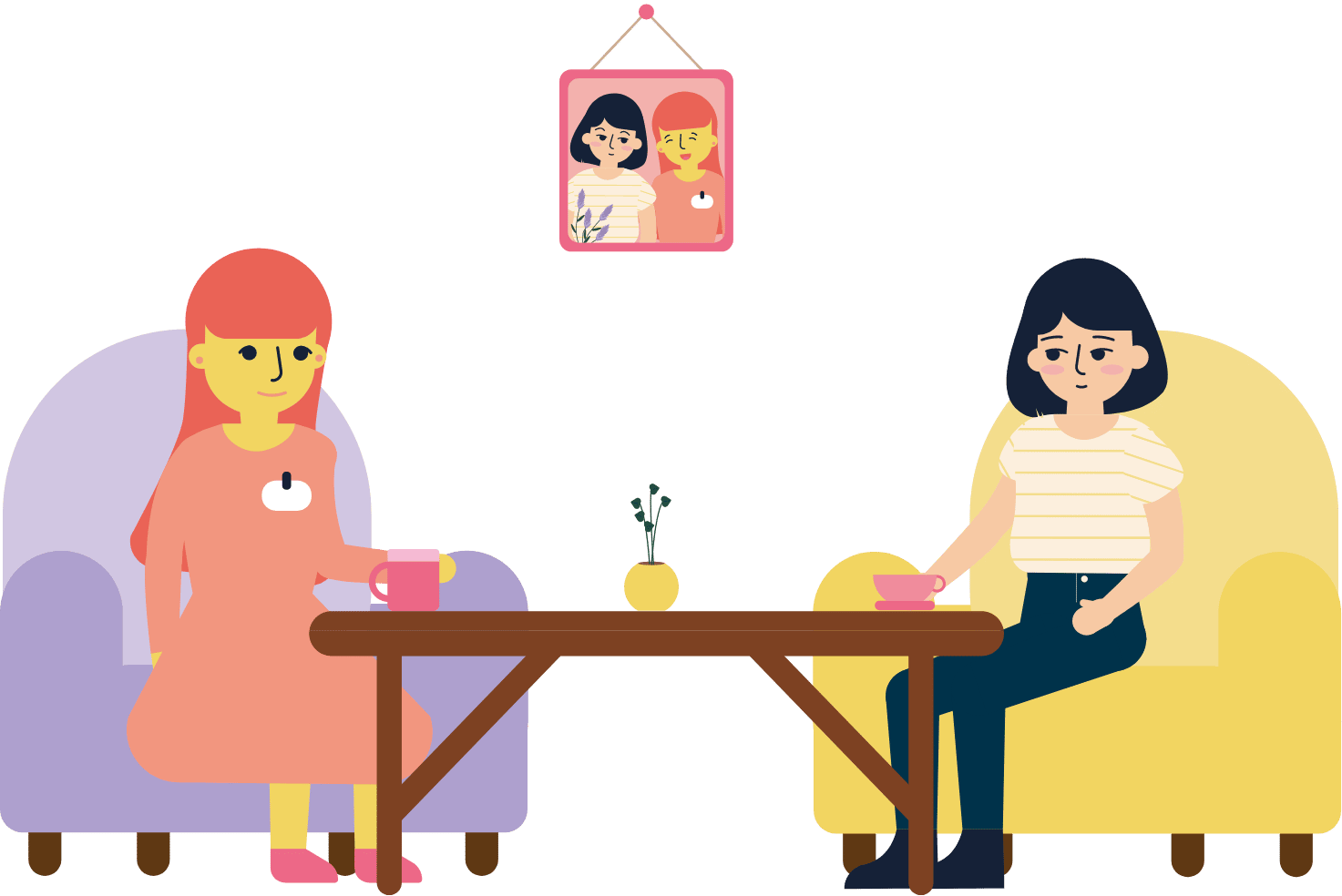FAQs


Questions and answers we’ve heard a few times and might be able to quickly help
Anyone over 18 can apply to become a Shared Lives carer whether you are single, in a relationship, have children, or live alone. And as long as you are fit and healthy enough, there’s no upper age limit for Shared Lives carers. Both partners in a couple need to apply and attend training even if one person will be the main carer.
Once you’ve been approved, your scheme coordinator will contact you to begin matching you with someone who will fit into your household. When you find a potential match it’s just like getting to know anyone new – meeting for a cuppa, a walk, or getting something to eat. Then, if you are both happy, the person may visit for a few hours, and then an overnight stay, before you both decide if it’s the right match for you.
Guidance on registering as self-employed is available on the government website.
Many Shared Lives carers start by offering day support or short breaks, which give you a chance to find out what being a Shared Lives carer is like.
Short breaks carers may support someone for a single overnight stay, a regular weekend a month, or a couple of weeks at a time. Whatever works best for the Shared Lives carer and the person staying with them.
Shared Lives carers who started with short breaks often say it is the ideal introduction for a new carer, and that it was an easy decision from there to open their home to someone long term.
If you don’t have a spare room suitable for someone to live in you can support someone just during the day – maybe someone with a learning disability or dementia. Day support offers lots of flexibility and variety, and Shared Lives carers who provide day support often become an extension of the supported person’s family.
The support you give to people will be as individual as they are but could include:
- Supporting someone with practical tasks like washing, cooking or shopping; and helping them develop those independent living skills
- Personal care including washing and dressing, or reminding them to take their medication
- Helping people make connections – keeping in touch with families, making new friends and getting involved in their community
- Supporting people to access education, volunteering, training or employment – including how to manage their money and use it safely.
The scheme will want to make sure that you have the right qualities to become a Shared Lives carer, and want to know more about you. Why do you want to work with people who need support? Do you have the ability to nurture them, communicate with them, advocate on their behalf and include them as part of your family? Are you willing to work as part of a team, develop your skills and qualities through training and learning and have the resilience to stay strong in times of difficulty?
Yes! This is one of the best parts of Shared Lives; everyone involved has to agree to the match and be happy with who they are going to support, visit, or live with. It’s totally unlike any other caring role.
As part of the carer assessment, you’ll talk to your scheme co-ordinator about the kind of people you’d like to support – their age range and needs, the number of people you will be approved to care for, and any other considerations.
Only if you want to.
Personal care can include helping someone with washing or dressing, or dealing with incontinence. But many people supported by Shared Lives have no personal care needs.
You and your scheme co-ordinator will talk about the level of support you are comfortable providing during the assessment process, and the scheme will be clear about the personal care needs of any potential matches before you start the matching process.
There are a few areas where all Shared Lives carers must do training, these include:
- First Aid
- Medication Awareness
- Food Safety
- Hydration
- Nutrition and Infection Control
- Moving and Assisting
- Safeguarding Adults
You may also need to do other training depending on the needs of the person or people you support. Quite a lot of this training can be done online, and in your own time.
